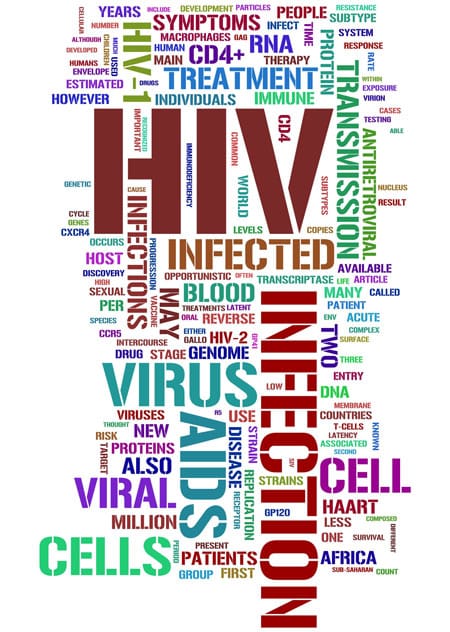
Article by Lalita Panicker, Consulting Editor, Views and Editor, Insight, Hindustan Times, New Delhi
Researchers and activists in the trenches of the long fight against HIV got a rare piece of exciting news last week: Results from a large clinical trial in Africa showed that a twice-yearly injection of a new antiviral drug gave young women total protection from the virus. www.nytimes.com/2024/06/21/health/lenacapavir-hiv-prevention-africa.html?
“I got cold shivers,” said Dr Linda-Gail Bekker, an investigator in the trial of the drug, lenacapavir, describing the startling sight of a line of zeros in the data column for new infections. “After all our years of sadness, particularly over vaccines, this truly is surreal.”
Yvette Raphael, the leader of a group called Advocacy for Prevention of HIV and AIDS in South Africa, said it was “the best news ever.”
The randomized controlled trial, called Purpose 1, was conducted in Uganda and South Africa. It tested whether the every-six-months injection of lenacapavir, made by Gilead Sciences, would provide better protection against HIV infection than two other drugs in wide use in high-income countries, both daily pills.
The results were so convincing that the trial was halted early at the recommendation of the independent data review committee, which said all participants should be offered the injection because it clearly provided superior protection against the virus.
None of the 2,134 women in the arm of the trial who received lenacapavir contracted HIV. By comparison, 16 of the 1,068 women (or 1.5 percent) who took Truvada, a daily pill that has been available for more than a decade, and 39 of 2,136 women (1.8 percent) who received a newer daily pill called Descovy were infected.
The findings were announced by Gilead. The data has not yet been subject to peer review. A second trial, conducted in six other countries, including Brazil and the United States, is assessing the effectiveness of lenacapavir in men who have sex with men, in transgender people and in those who use injection drugs. Midterm review of those results will take place later this year.
While Truvada, taken daily, provides high levels of protection against HIV infection and has been widely used by gay men in the United States and other high-income countries for years, it has not proved to be a potent prevention tool in Africa, where uptake has been low, particularly among young African women, the group with the highest rates of new infection.
The hope is that a twice-a-year injection, which women can put on their calendars and then not think about for months, will prove more effective.
“For a young woman who can’t get to an appointment at a clinic in a town, a young woman who can’t keep pills without facing stigma or violence — an injection just twice a year is the option that could keep her free of HIV,” said Lillian Mworeko, who leads a group called the International Community of Women Living With HIV, Eastern Africa.
The outstanding question is access: Gilead charges $42,250 per patient per year for lenacapavir, in the United States, where it is approved as a treatment for HIV.
Gilead said it was committed to making large volumes of the drug available “at prices that enable widespread availability” as quickly as possible in low-income countries with high HIV incidence rates.
Janet Dorling, Gilead’s senior vice president for global patient solutions, said the company intended to sign voluntary licenses with generic drug makers in several regions, sharing its intellectual property in exchange for a licensing fee, so that eventually a cheaper generic product would become available for low- and middle-income countries.
It can take generic makers years to get ready to produce a drug, and they need to have a sense of the potential market in order to commit to investing in production. So, in the meantime, Gilead will aim to ship “sufficient volumes” of lenacapavir to low-income countries as soon as it has regulatory approval, she said.
Lenacapavir and the two pills studied are all known as pre-exposure prophylaxis drugs, or PrEP. Another effective injectable PrEP drug is available in some African countries, but its rollout has been bedevilled by access questions. Long-acting cabotegravir, which is delivered as an injection every two months, also showed excellent results in clinical trials in Africa. It is made by ViiV Healthcare, which is majority owned by the pharmaceutical giant GSK; the company is charging $180 per patient per year for cabotegravir in developing countries, a price out of reach for most people and health systems in Africa.
South Africa’s current budget for oral PrEP is about $40 per patient per year.
////
New test results released by the US Food and Drug Administration last Friday found that bird flu virus is making its way from dairy farms and into milk processing plants but also confirmed that the commonly used flash pasteurization method fully neutralizes the virus. www.cnn.com/2024/06/28/health/fda-bird-flu-flash-pasteurization/index.html?
The FDA collected and tested 275 bulk samples of raw milk from farms in four states in which herds had tested positive for H5N1, or bird flu. The samples were collected between April 18 and 27.
Half of those samples were positive for traces of influenza. A quarter of those positive samples also proved to be infectious, meaning the virus grew when it was inoculated into fertilized chicken eggs, the gold-standard test for determining whether a virus is viable and could make someone sick.
Dr Don Prater, acting director of the FDA’s Center for Food Safety and Applied Nutrition, noted that the milk the agency tested was bound for pasteurization and was not going directly to store shelves.
But he says he is aware that some states allow the sale of raw milk for human or animal consumption.
“That’s why we put out the messaging that we have around raw milk, because it could be a potential route of exposure,” Prater said.
Based on the concentrations of virus in the samples they collected, FDA scientists next took uninfected raw milk from the University of Georgia dairy and laced it with live H5N1 virus. They ran it through a machine they built that replicated all steps of flash pasteurization, where milk is heated to 161 degrees Fahrenheit for 15 seconds.
Their testing included a preheating step that was missing from earlier studies that had tested the same times and temperatures to kill live virus.
In fact, the preheating step fully neutralized all the infectious virus, Prater said, proving that it was a critical element of the process.
“We built an instrument so that we could sample milk as it goes through these different stages” of the pasteurization process, Prater said, “and what we found is that the virus was actually inactivated even before it got into the holding tube.”
Prater says the new study really helps explain earlier research that found that 1 in 5 dairy products pulled from store shelves contained inert fragments of the H5N1 virus.
////
Authorities in the Democratic of Congo have approved the use of two mpox vaccines to try to tackle an upsurge in cases and a dangerous new strain spreading in the country. www.reuters.com/world/africa/congo-authorities-approve-mpox-vaccines-try-contain-outbreak-2024-06-26/?
Congo has seen 20,000 cases and more than 1,000 deaths from mpox, mainly among children, since the start of last year.
The disease is a viral infection that spreads through close contact, causing flu-like symptoms and pus-filled lesions. Most cases are mild but it can kill.
This week, the World Health Organization (WHO) and scientists warned of a new, more deadly strain spreading in Congo’s South Kivu province.
The regulator has issued an emergency-use authorisation for both Bavarian Nordic’s (BAVA.CO) b shot, Jynneos, and LC16, made by KM Biologics, according to documents and sources involved in the process.
In the latest outbreak in Congo, national and international regulatory barriers, a lack of funding, competing disease outbreaks and stigma have held back the response.
The chief executive of Gavi, the Vaccine Alliance, Sania Nishtar, told Reuters last week that her organisation was ready to use COVID-19 era protocols to facilitate donations of the vaccines from the United States and Japan once an approval was in place. A spokesperson for Bavarian Nordic on Wednesday confirmed the approval in Congo. KM Biologics said by email there was a potential supply of vaccine to Congo but it had no other information to share.
Although the Congo authorities have approved the vaccines, Gavi, which funds the purchase of vaccines for low-income countries that are unable to do so alone, cannot buy them without them being “pre-qualified” by the World Health Organization (WHO), a form of approval.
In the absence of the approval, Gavi is reliant on donated vaccines.
A WHO spokesperson said the agency is working with the vaccine manufacturers on an approval process. He urged countries to proceed with their own approvals as well as providing the WHO with more data to move the process forward.
Funding is also an issue, Cris Kacita, who leads mpox operations nationally in Congo, told Reuters.
He said $84 million is needed to respond in the provinces most at risk, but only $8 million has been raised.
“There is a critical need to address the recent surge in mpox cases in Africa,” Rosamund Lewis, the WHO’s technical lead for mpox, said in a briefing note to journalists. www.reuters.com/business/healthcare-pharmaceuticals/who-scientists-warn-mpox-strain-congo-2024-06-25/?
In a separate briefing, John Claude Udahemuka of the University of Rwanda, who has been working on an outbreak in Congo’s hard-to-reach South Kivu province, said the strain spreading there – a mutated version of the clade I mpox endemic in Congo for decades – was extremely dangerous. It has fatality rates of around 5% in adults and 10% in children.
A different, less severe form of the virus – clade IIb – spread globally in 2022, largely through sexual contact among men who have sex with men. This prompted the WHO to declare a public health emergency.
Vaccines and treatments were used to combat the global outbreak, but they are not available in Congo.
The WHO and scientists said efforts were ongoing to address that.
In South Kivu, Adahemuka and other researchers said the new strain was spreading partly by sexual contact among men and women, and particularly among sex workers.
He said other close contact routes needed study, with evidence of transmission at school and from caregiver to child. The disease also seemed to be causing miscarriages among pregnant women as well as a longer-term rash and other lingering symptoms, the team said.
Leandre Murhula Masirika, research co-ordinator in the health department in South Kivu province, said 20 cases were arriving at hospital in the mining town of Kamituga every week.
“At the rate things are going, we risk becoming a source of cases for other countries,” said Kacita. South Kivu borders Rwanda and Burundi.
He said 24 of 26 provinces in Congo were affected and the outbreak was the worst mpox epidemic yet.


